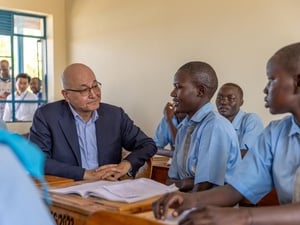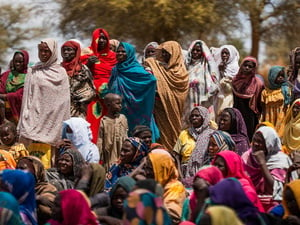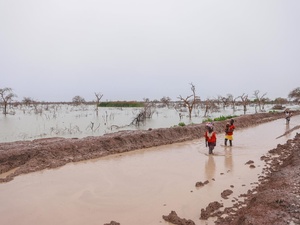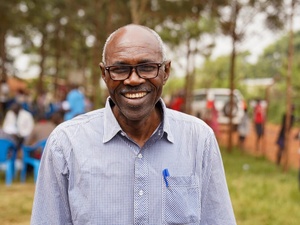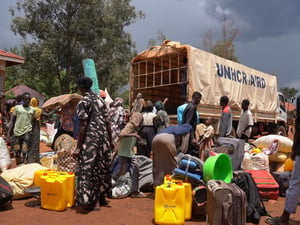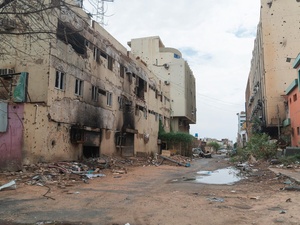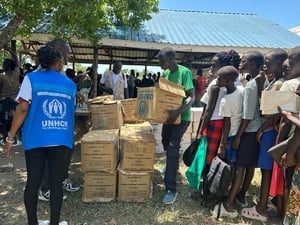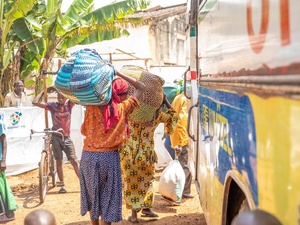UNHCR working with Government of Uganda and emergency response partners to contain cholera outbreak amongst the newly arrived South Sudanese refugees in Adjumani district, Uganda
UNHCR working with Government of Uganda and emergency response partners to contain cholera outbreak amongst the newly arrived South Sudanese refugees in Adjumani district, Uganda
The Government of Uganda and UNHCR, the UN Refugee Agency, are implementing containment measures in the recently-opened Pagirinya settlement in Adjumani district following confirmation of an outbreak of cholera.
49 South Sudanese refugees and one Ugandan national have been confirmed to have contracted the disease. 44 have been provided with treatment and subsequently discharged from health facilities having fully recovered, while two patients remain in quarantine.
Additional measures are being taken to ensure the outbreak doesn’t spread further. Those who have contracted the disease are having their houses disinfected and their water supply drained while a door to door awareness-raising campaign takes place. The sale of fresh produce at markets and on the road side has been restricted. Other sanitation strengthening activities, such as chlorination of water points, garbage cleaning, strengthening of hand-washing facilities and the distribution of water guards, have been intensified. As a result, the number of new cases continues to be small but health teams continue to pay close attention to individuals displaying any potential symptoms.
Cholera is an acute infectious disease, usually shared through the consumption of contaminated food and water, which can potentially prove fatal. Sufferers endure symptoms that include acute watery diarrhea and vomiting.
The majority of people found to be suffering from the outbreak are located in reception centres in Pagirinya settlement, with smaller numbers found to be suffering in the settlement itself and at Elegu collection point. Pagirinya is currently hosting more than 30,000 South Sudanese refugees, all of whom arrived in the last 6 weeks.
“We have received a large number of young children as refugees over the last month or so, who are particularly vulnerable to this possibly lethal disease,” said acting Representative to Uganda Bornwell Kantande. “Together with the Ministry of Health and our health partners, we’ve rapidly implemented response measures to contain its spread. We’re continuing to do our best to reduce the number of people living in these reception centres as quickly as possible, not only to reduce the risk of disease outbreaks, but so that these people can begin to rebuild their lives as soon as possible.”
Decongestion of transit and reception centres remain a top priority. Refugees are being relocated to the recently-opened Bidibidi settlement in Yumbe district where, in line with Uganda’s generous settlement approach, they will be provided with plots of land on which to build new homes and to grow agricultural crops.
More than 80,000 South Sudanese refugees have fled to Uganda since the outbreak of violence in Juba on 8 July. Over 85% of the new arrivals are women and children, with children comprising 64 percent of new arrivals. They report that armed groups are attacking villages, killing civilians, sexually assaulting women and girls and forcibly recruiting young men and boys in to their ranks.
News contacts:
In Nairobi, Teresa Ongaro, [email protected] +254 735 337 608
In Kampala, Charlie Yaxley, [email protected] +256 0 776 720 045
In Geneva, Nora Sturm, [email protected] +41 79 200 76 18


